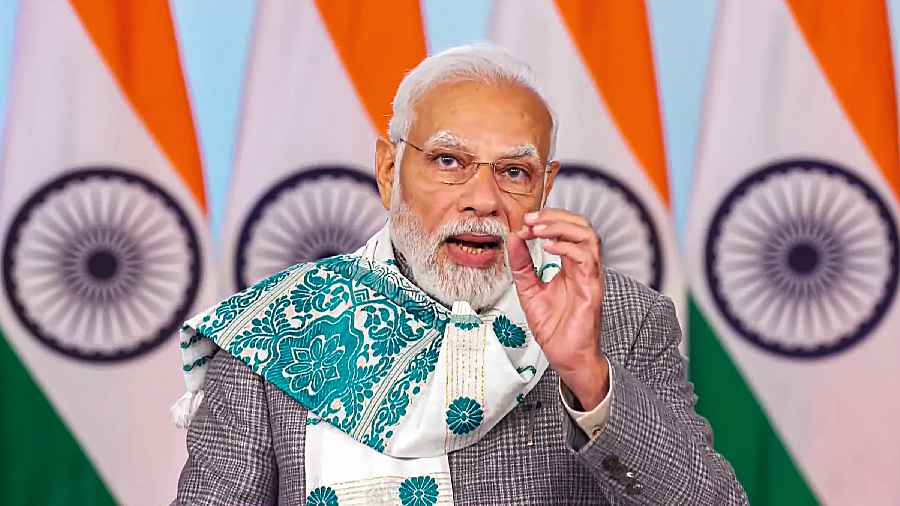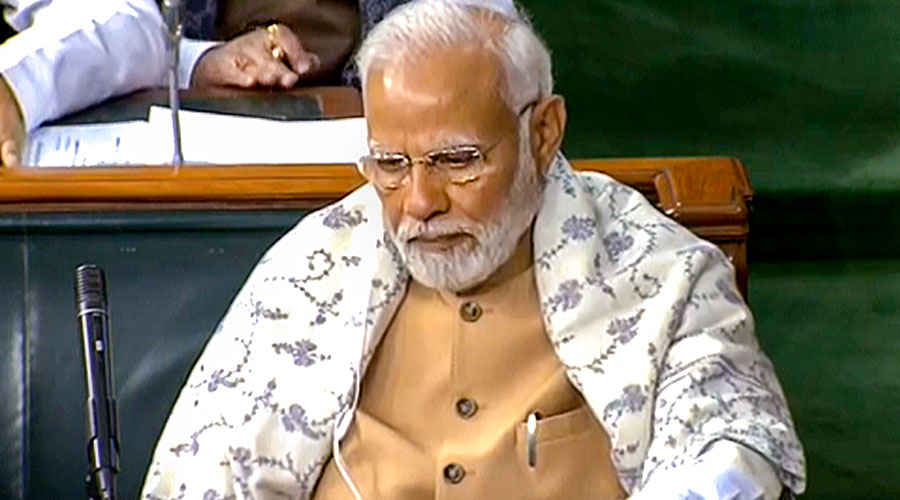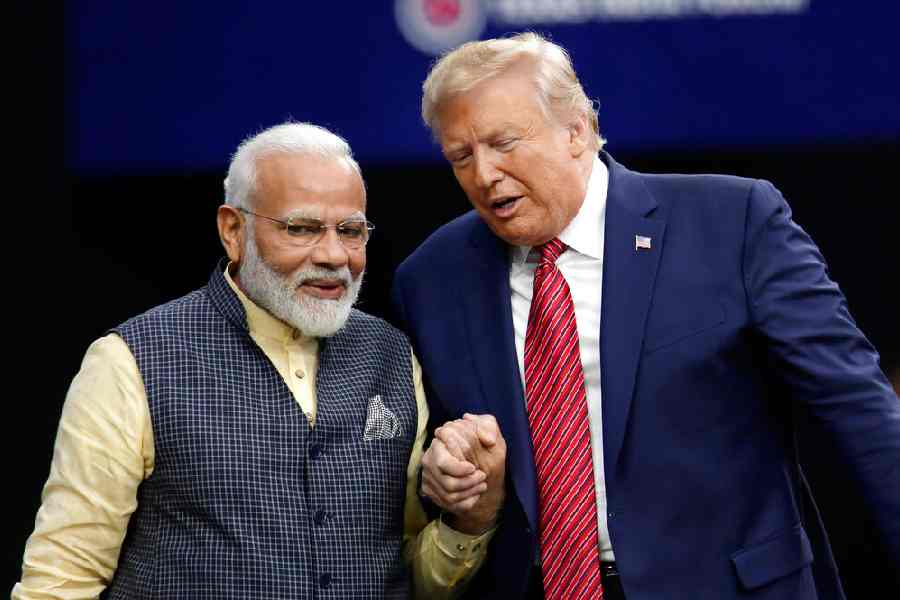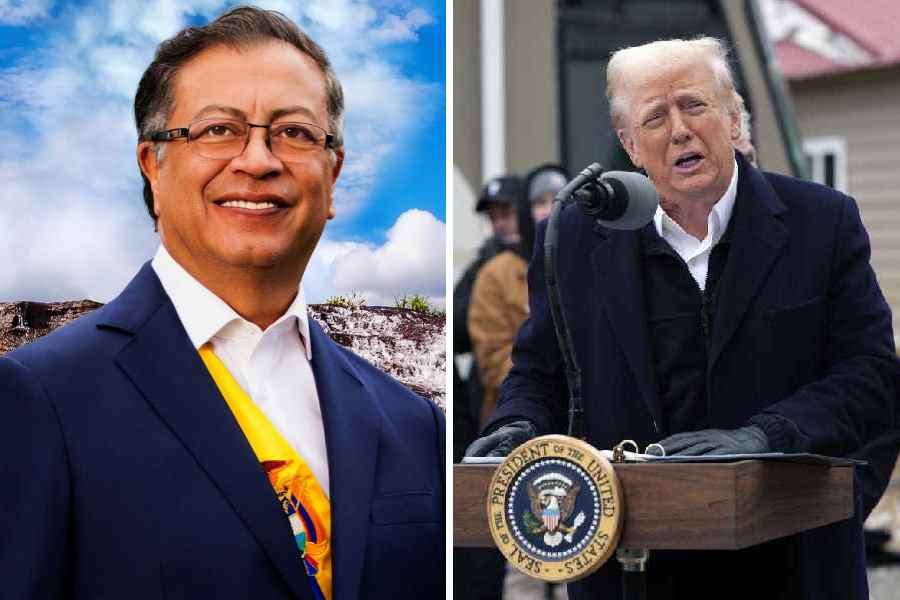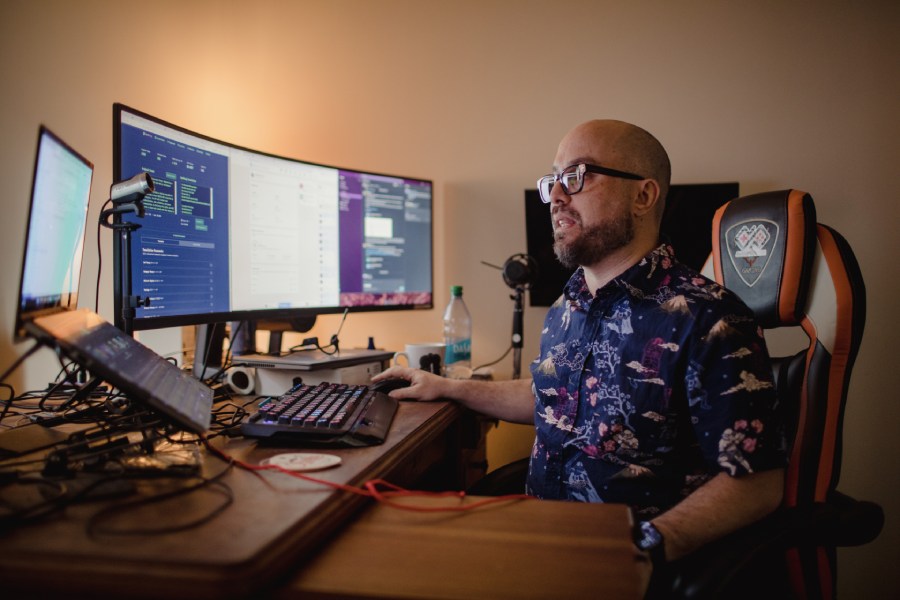The Congress on Sunday asked the government how the Adani group escaped scrutiny despite serious allegations over the past few years and whether a fair investigation was possible under Prime Minister Narendra Modi who has been accused of giving patronage to the business conglomerate.
Stepping up pressure on the Centre in the wake of silence from the Prime Minister despite the market mayhem and global reactions to the allegations of fraud levelled in the Hinderburg report, Congress communications chief Jairam Ramesh announced that the party would pose three questions daily to Modi.
Arguing that Modi’s silence smacked of collusion, Ramesh tweeted: “The eloquent silence of the Prime Minister on the Adani ‘MahaMegaScam’ has forced us to start a series, HAHK (Hum Adani ke Hain Kaun). We will be posing three questions to the Prime Minister daily beginning today. Chuppi Todiye Pradhan Mantriji.”
Ramesh reminded the Prime Minister of his lofty anti-corruption rhetoric and much-publicised decisions in the past, saying: “In response to the Panama Papers expose, on April 4, 2016, the ministry of finance announced that you had personally directed a multi-agency investigative group to monitor financial flows to and from offshore tax havens.
“Subsequently, at the G20 summit in Hangzhou, China, on 5 September 2016, you stated: ‘We need to act to eliminate safe havens for economic offenders, track down and unconditionally extradite money launderers and break down the web of complex international regulations and excessive banking secrecy that hide the corrupt and their deeds.’ This leads to some questions that you and your government cannot hide from saying HAHK (Hum Adani Ke Hain Kaun).”
The three questions posed by the Congress are produced verbatim:
- Vinod Adani, brother of Gautam Adani, was named in the Panama Papers and the Pandora Papers as someone who operates offshore entities in the Bahamas and the British Virgin Islands. He is alleged to have engaged in “brazen stock manipulation” and “accounting fraud” via “a vast labyrinth of offshore shell entities”. You have spoken often about your sincerity and ‘neeyat’ in fighting corruption and even subjected the nation to the heavy costs of demonetisation. What does the fact that a business entity you are well acquainted with faces serious allegations tell us about the quality and sincerity of your investigations?
- Over the years you have misused agencies like the Enforcement Directorate, Central Bureau of Investigation and the Directorate of Revenue Intelligence to intimidate your political opponents and to punish business houses that do not fall in line with your cronies’ financial interests. What action has been taken, if ever, to investigate the serious allegations made over the years against the Adani group? Is there any hope of a fair and impartial investigation under you?
- How is it possible that one of India’s largest business groups, one that has been allowed to build monopolies in airports and seaports, could have escaped serious scrutiny for so long despite persistent allegations? Other business groups have been harassed and raided for much less. Was the Adani group essential to a dispensation that has profited from “anti-corruption” rhetoric all of these years?
The initiative is a clear indication of the Congress’s determination not to let the Modi government off the hook on the Adani crisis, come what may.
While the government has so far shown no inclination to order any investigation into the allegations with the finance minister asserting fool-proof regulatory systems being in place to take care of violations, the Opposition parties have decided to hold a demonstration in front of Mahatma Gandhi’s statue on the Parliament premise on Monday morning.
A strategy meeting has also been called by leader of Opposition Mallikarjun Kharge in the morning to decide the future course of action amidst the desire of some political parties to take part in the debate on the motion of thanks to the President’s address to both Houses of Parliament.

